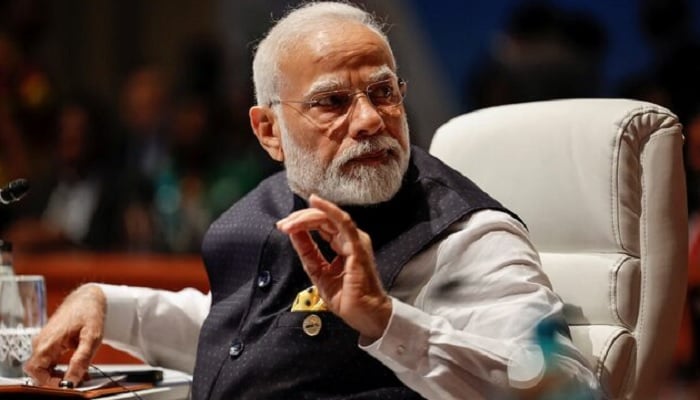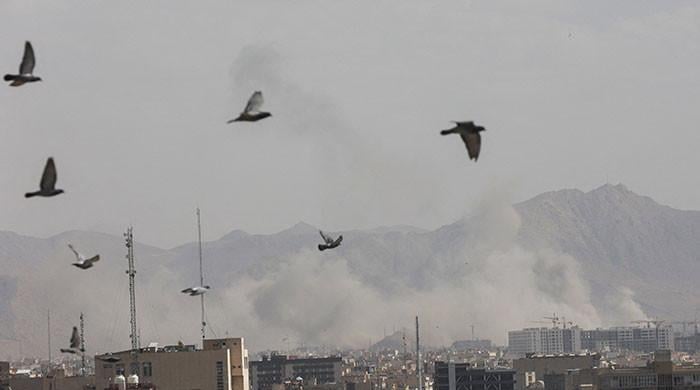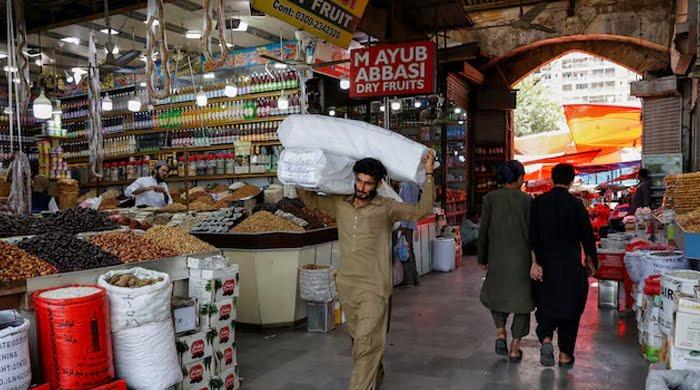In Modi's hunt for war allies, who's saying no?
India is desperately seeking co-conspirators in a reckless plan, so that Modi can share the blame for any unprovoked war.
May 05, 2025

Since April 22 — the day 26 tourists were killed in Pahalgam, a mountain destination in Indian Illegally Occupied Kashmir (IIOJK) — New Delhi has failed to rally support for a war against Pakistan.
It’s worth asking: who is stopping the Bharatiya Janata Party (BJP) government, and who can continue to prevent Prime Minister Narendra Modi from finding bloodthirsty partners in crime?
Thanks to unprecedented diplomatic efforts led by Foreign Minister Ishaq Dar, under the leadership of Prime Minister Shehbaz Sharif and Chief of Army Staff (COAS) General Syed Asim Munir, India is running from pillar to post only to find most international doors firmly shut.
Meanwhile, peaceful demonstrations by the Pakistani diaspora in London, Paris, and New York — and their continued outreach to elected representatives — are paying off. As a result, a baffled New Delhi, which took no time to point all the fingers at Islamabad without evidence, has so far met with utter embarrassment trying to link the Pahalgam attack to Pakistan.
In the US, politicians with a military background are normally considered hawkish; however, in the case of escalating India-Pakistan tension, two Republican congressmen, former decorated servicemen, have also advocated for a peaceful resolution.
Congressmen Jack Bergman, a retired lieutenant general in the US Marine Corps, and Keith Self, a retired lieutenant colonel, were recently hosted by the American-Pakistani community in New York.
The event followed the rising tensions triggered by the Pahalgam incident. Naturally, the Pakistani community was eager to know what role the US might play in defusing this crisis.
Tanweer Ahmad, a US-based Pakistani entrepreneur, held India accountable, citing decades of alleged false-flag operations against Pakistan, stretching back to 1971. Tying those incidents to the recent terrorist attack in Balochistan, Ahmad argued that India was retaliating against Pakistan’s accusations over the Jaffar Express blast.
Highlighting some glaring inconsistencies in what was reported after the IIOJK attack, Ahmad said, “The assault began at 1:50pm and ended by 2:20pm. Yet, the police filed a report at 2:30 PM — just 10 minutes later — even though it usually takes an hour to reach the station. How is it possible they not only made the trip but also identified the attackers as Pakistani terrorists in that short time? It reeks of preplanning. India still hasn’t provided a shred of evidence.” He urged the President Donald Trump-led US administration to stop viewing Pakistan through India’s biased lens.
Congressman Bergman responded thoughtfully:
“The level of detail you just gave me — I am listening and learning. I take things in, and if you want me to come back to you with detailed comments in the future, I will.”
He added a broader reflection:
"This may sound pessimistic, but the world is populated by human beings — and we are all failing as fallible creatures. Some entity — in this case, I believe it is the United States, allied with other likeminded free countries — has to provide the example worldwide, knowing that the results could be different in different parts of the world at different times in our history."
Bergman, who represents Michigan’s First District, had recently visited Pakistan along with Congressmen Thomas Suozzi and Jonathan Jackson, meeting COAS Munir and senior cabinet members.
Congressman Keith Self, a former county judge and a special forces officer with nuclear command experience, also shared his concerns over escalation.
“India and Pakistan have had troubles for decades. These are two significant nations — 250 million in Pakistan, 1.4 billion in India — and both are nuclear powers,” Self, who is well aware of the dynamics of South Asia, said.
“Folks, I commanded a nuclear detachment in special forces. We carried a suitcase nuclear around on our backs. And I stood on strategic nuclear watch for a whole year, where I knew all of the war plans. My job was to study them and then act as a nuclear command headquarters should the Pentagon or NORAD be destroyed. So, the nuclear war is unthinkable.’’
He warned India against going down the path of war, saying that once it begins, it spirals beyond control.
“When you let loose the dogs of war, they go where you can’t predict. I hope that India and Pakistan can keep their troubles to a low level until they can be solved because the war between these two countries is unthinkable.”
Such reasoned voices must be acknowledged and amplified. They have, for now, brought the war-hungry Indian prime minister to his senses.
It is now imperative for the global Pakistani community to step up. Engage your lawmakers, senators, and presidents. Write to the prime ministers of your adopted countries. Be persistent, persuasive, and peaceful. South Asia is teetering on the edge of catastrophe — your voice could tip the scales toward sanity.
Otherwise, to distract from its failure to protect tourists in Pahalgam, the Modi government may opt for misadventure. India is desperately seeking co-conspirators in a reckless plan, so that Modi can share the blame for any unprovoked war.
So far, thanks to Pakistan and its determined diaspora, Modi has found only messengers of peace.











